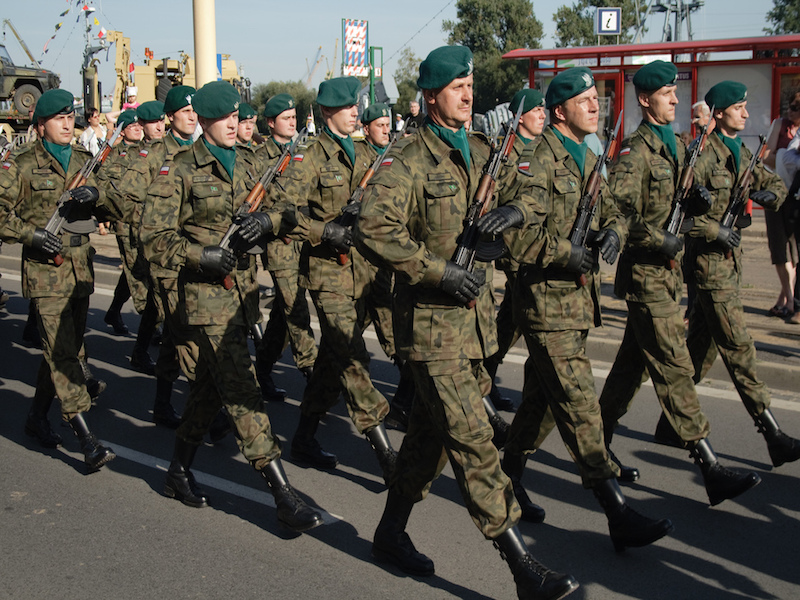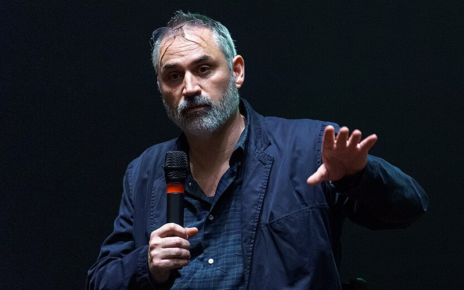Since taking over from the Eurocentric Civic Platform Party late last year, the right-wing Law and Justice Party has made efforts to differentiate itself from previous governments and consolidate its power. In the process, it has taken some debateable positions, such as the decision to appoint officials sympathetic to the party to the country’s highest court of law, the Constitutional Tribunal, as well as state media controls, anti-migrant, anti-EU, and nationalist rhetoric, revealing the growing prominence of reactionary forces within government. Law and Justice’s policies have built on the skepticisms of the Polish public regarding the evolving nature of Poland’s increasingly important role within Europe, but what’s emerged is a growing divide between internal and external policy objectives.
Government intervention in supposedly neutral institutions like public broadcasting corporations, the Constitutional Tribunal and the December police raid at the NATO affiliated Counter Intelligence Centre of Excellence in an attempt to oust the director, Col. Krzysztof Dusza, has weakened European confidence in Poland’s commitment to the EU project. Such policy moves have been part of the populist campaign playing on the concerns of many Poles. Despite Poland’s being the poster child of EU integration and economic prosperity, persistently high rates of youth unemployment at around 20%, fears of deflation and growing wage gaps have instilled pessimistic attitudes within the public. With around a third of the population being under 25 years old and polls showing figures as high as 41% in terms of Poles planning to emigrate, Law and Justice has touched upon the fear of mass immigration of refugees and Ukrainian economic migrants with the ensuing financial instability. Though nationalist sentiment has become increasingly common place within European politics, what separates Poland’s right-wing politics is its role as the sixth largest European economy and its position as part of NATO’s main line of defence against any possible Russian intrusion.
Signs of a rift between the EU and the Polish government are increasing, with the European Commission launching an inquiry into the government’s handling of the Constitutional Tribunal case. The matter saw Law and Justice blocking the incoming judges appointed by the previous Civic Platform government against the rulings of the Constitutional Tribunal, replacing them with their own appointments. The European Commission began looking into violations of EU laws on democracy in Poland with the possibility of invoking Article 7 of the Lisbon Treaty, suspending the country’s voting rights in the EU Council, should there be any substantive democratic violations. The European Parliament also passed a resolution calling on the Polish government to adhere to the Constitutional Tribunal and added pressure on the European Commission to take additional measures to ensure this happens.
Relations between Poland and key EU members like Germany, with whom Poland shares the largest economic ties have become stressed. With Berlin calling on countries like Poland to take in thousands of refugees and criticizing Law and Justice government’s control measures over media, the Polish government has struck back by mentioning wartime grievances and refusing to make reforms. The Polish government has also been vocal in its support of Brexit components in the UK, hoping to find greater room for political manoeuvering within the framework of the EU despite Germany’s calling for European unity. Poland is a crucial part of Germany’s overall defence policy and divisions between the two Central European countries may result in less cohesive NATO policy over certain issues.
On the other hand, Poland has been pushing NATO and in particular, the US, to increase the number of troops and military hardware in Eastern Europe and Poland in order to deter any perceived Russian aggression despite German opposition. Berlin has repeatedly mentioned the need to take on an inclusive approach with Russia so as to prevent any isolation and provocation. Regardless, Law and Justice has made itself heard on the topic of NATO defence plans on the Eastern flank, calling for a permanent NATO base in the country and lobbying for up to two NATO divisions to be stationed in the Baltics and Poland.
Up to now, the US has resisted such calls citing lack of funding for a permanent installation and the amount of bureaucracy and amount of time it would take to pass legislation and approval measures for the base. However, a NATO “readiness action plan” is in the works with the creation of a rapid-reaction force and command posts scattered throughout the Eastern European NATO members and plans for increased coordination in terms of troop deployment and rotation in order to increase the number of troops readily available. The NATO Warsaw Summit to take place this July will be of great importance in determining feasible plans for how future troop increases are organized and the number of battalions stationed in Poland and the Baltic states.
Curiously enough, Law and Justice’s reliance on populism have seen it take both an anti-EU stance and a pro-NATO stance, prioritizing the needs of Poland in terms of domestic and foreign policy. Nonetheless, Poland and NATO draw strength from having allied states closely integrated through the EU, where the EU provides for more effective lines of communication between members which are essential in making efficient use of existing NATO measures. Any attempt at ensuring a solid defence policy should also take into account the relation between internal and external policy and perceptions.
Photo courtesy of Piotr Włodarczyk via Wikimedia Commons. Licensed under CC BY-SA-2.0.
Disclaimer: Any views or opinions expressed in articles are solely those of the authors and do not necessarily represent the views of the NATO Association of Canada.




